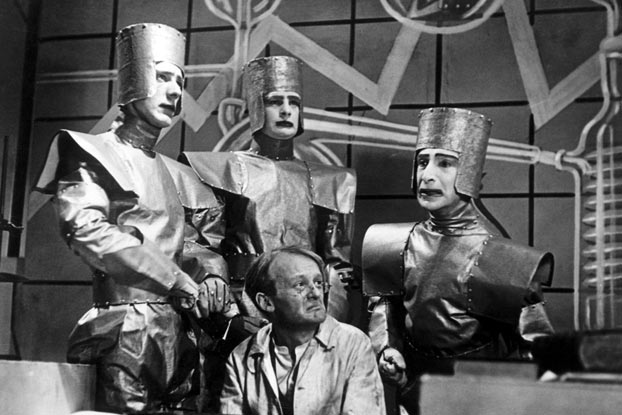In his latest Financial Times column, “Man v Machine (Again),” Tim Harford doesn’t readily dismiss Luddites as buffoons of history, arguing the laborers had a point: They didn’t believe weaving machines would disappear all jobs but that those they took would be among the best. Perhaps that’s what’s about to happen in a large-scale way thanks to robots. One puzzlement voiced by Harford: Robotics has yet to increase productivity, so either traditional measurements are failing or no one quite knows what’s going on. An excerpt:
The Luddite anxiety has been dormant for many years but has recently enjoyed a resurgence. This is partly because journalists fear for their own jobs. Technological change has hit us in several ways — by moving attention online, where (so far) it is harder to charge money for subscriptions or advertising; by empowering unpaid writers to reach a large audience through blogging; and even by introducing robo-hacks, algorithms that can and do extract data from corporate reports and turn them into financial journalism written in plain(ish) English. No wonder human journalists have started writing about the economic damage the robots may wreak.
Another reason for the robo-panic is concern about the economic situation in general. Bored of blaming bankers, we blame robots too, and not entirely without reason. Inequality has risen sharply over the past 30 years. Many economists believe that this is partly because technological change has favoured a few highly skilled workers (and perhaps also more mundane trades such as cleaning) at the expense of the middle classes.
Finally, there is the observation that computers continue to develop at an exponential pace and are starting to make inroads in hitherto unexpected places — witness the self-driving car, voice-activated personal assistants and automated language translation. It is a long way from the spinning jenny to Siri.
What are we to make of all this? One view is that this is business as usual. We’ve had dramatic technological change for the past 300 years but it’s fine: we adapt, we still have jobs, we are incomparably richer — and the big headache of modernity isn’t unemployment but climate change.
A second view is that this time is radically different: the robots will, before long, render many people economically valueless — simply incapable of earning a living wage in a market economy. There will be plenty of money around but it will flow to the owners of the machines, and maybe also to the government through taxation. In principle, all could be well in such a future but it would require a radical reimagining of how an economy could work. The state, not the market, would be the arbiter of who gets what. Such a world is probably not imminent but, by 2050, who knows?
. . .
The third perspective is what we might call the neo-Luddite view: that technology may not destroy jobs in aggregate but rather changes the demand for skills in ways that are real and troubling. Median incomes in the US have been stagnant for decades. There are many explanations for that, including globalisation and the decline of collective bargaining, but technological change is foremost among them.•
Tags: Tim Harford

